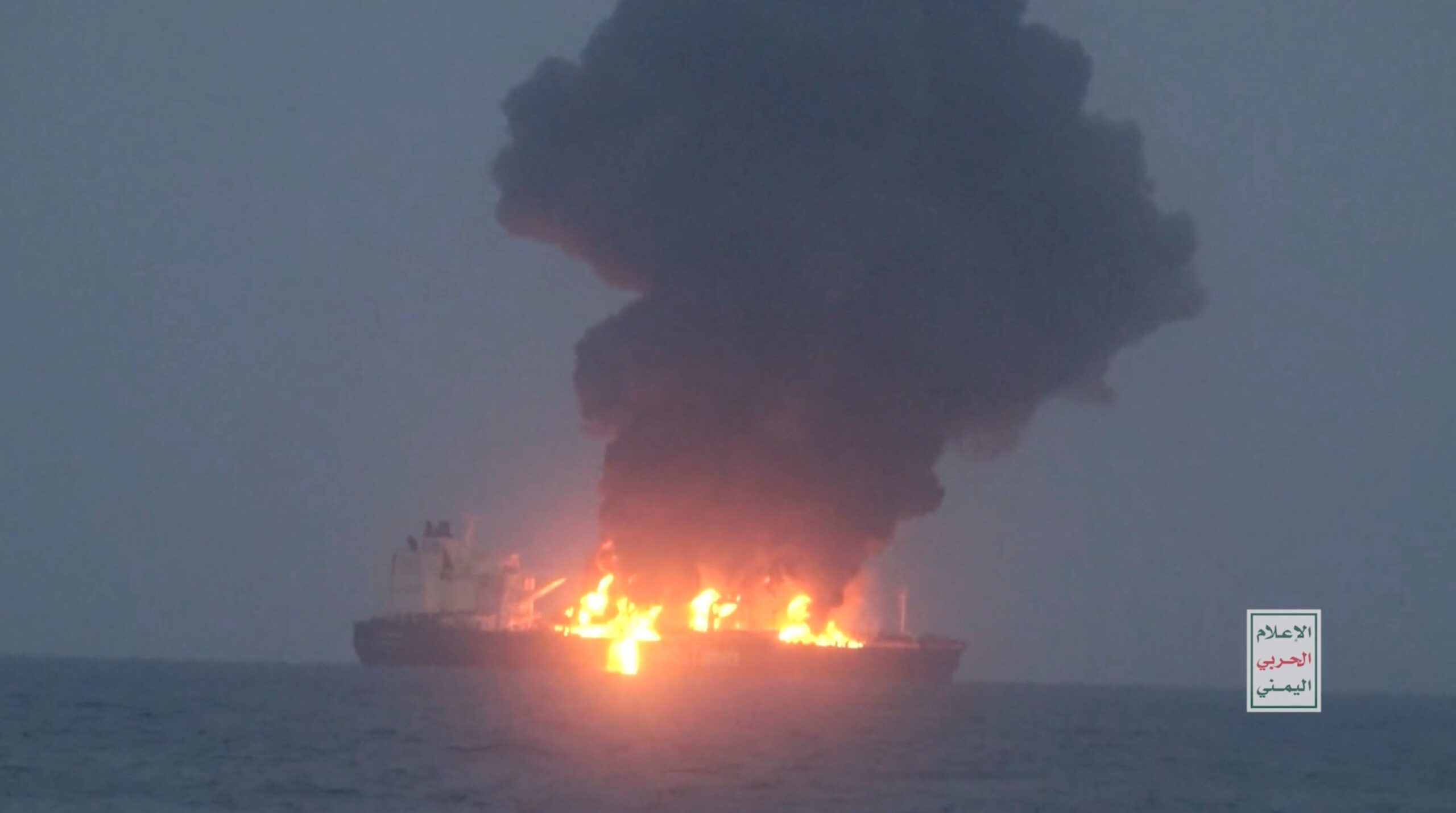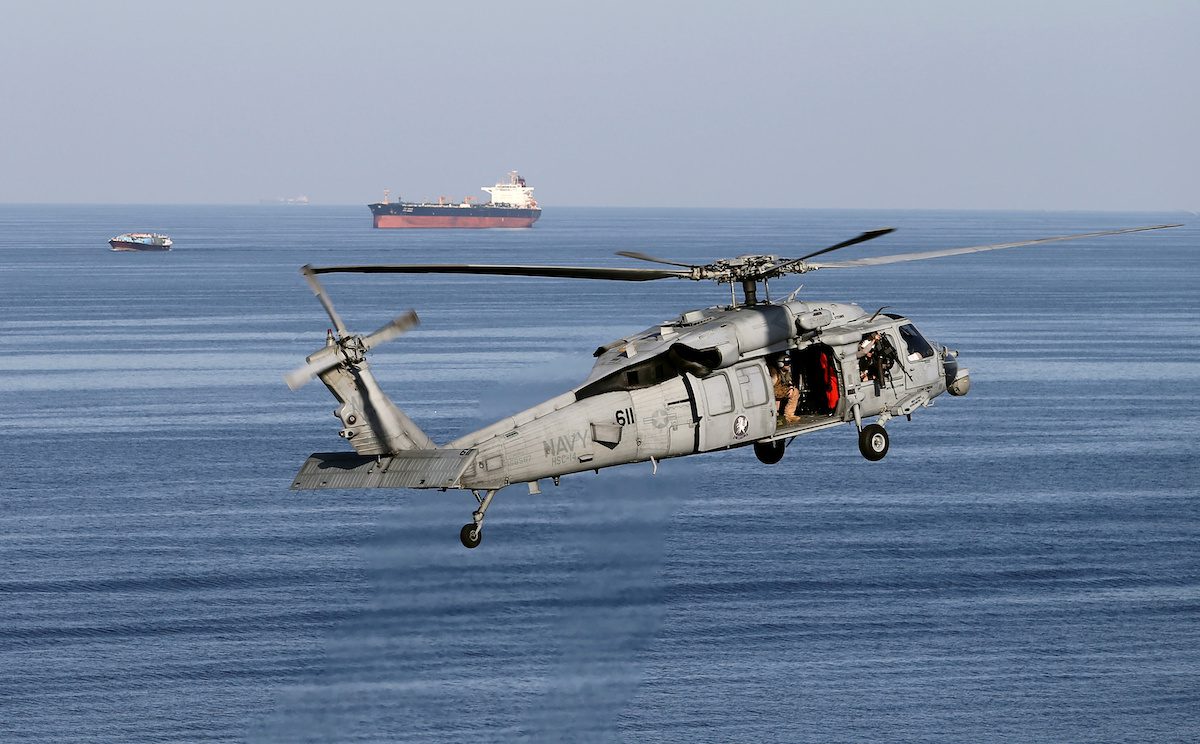The drybulk panel at Capital Link’s International Shipping Forum (now in its 16th year) proved to be lively, to say the least, as shipowner participants engaged in a friendly volley along the lines of “Which is better?”.
Martyn Wade, CEO of Nasdaq listed Grindrod Shipping (symbol “GRIN”), operating 31 Handy and Ultramax bulkers-mostly owned, some chartered in long-term, under the Island View Shipping (IVS) banner, said: “It’s our turn this time…” and “You pinch yourself…it’s really really hot out there,” after noting a recent fixture of a 33,000 tonner for around $50,000/day for work hauling containers. Later in the session, Mr. Wade said that GRIN was “happy to be rewarding long-suffering shareholders” with dividend payments, and prudent management of the balance sheet.
On the other side of the screen (the Forum was virtual this year), Ulrik Uhrenfeldt Andersen, the CEO of Golden Ocean (“GOGL” on Nasdaq and in Oslo), controlling 92 vessels split between Capesizes and Panamaxes, said: “Over time, the Capesizes outperform the smaller ships.” At present, the daily vessel hires for small bulk carriers are exceeding those on fixtures of their larger brethren; Panamaxes have seen per diems nearing $30,000/day based on a composite of time-charter trips, while Capesizes (also a composite) are earning roughly half of that.
With Capital Link’s audience skewed heavily towards investors and financial types, much of the conversation turned towards future happenings, with questions relating to the on-going war in Ukraine joining “decarbonization”, a well-trodden topic, in this part of the conversation.
The CEO of Star Bulk (Nasdaq: “SBLK”- with a company tagline “Give me a Ship and I shall move the Earth”), Hamish Norton (a one-time investment banker) emphasized reduced vessel supply and its importance in drybulk strength. Mr. Norton, commanding a fleet of 128 vessels across the size ranges from Supramaxes (52 kdwt) up to Newcastlemaxes (210 kdwt) explained that: “A big impact reducing the supply of ships is high bunker prices…that’s something intuitively you think would hurt, but actually it helps a lot.” He went on to explain to listeners that: “Everybody individually tries to maximize their profit, which [you do] by slowing your ship down and burning less fuel…that reduces the supply of ships.”
The impacts of the Ukraine crisis go beyond the high fuel prices (tied to the super-charged oil market). Mr. Andersen suggested that: “A shorter conflict is likely to be good for shipping, whereas a longer conflict is likely to be a bit negative…coal is likely to allocated more efficiently because the Russian coal can no longer go to Europe…that has to come from as far away as Australia we have seen…and that is able to adapt to a prolonged conflict…whereas the grains, which is quite a large chunk coming out of Ukraine and Russia, is in the short term probably replaceable from other [ports] but overtime we think that there will be a demand destruction.”
Panelist Stamatis Tsantanis, CEO of Capesize specialist Seanergy (Nasdaq: “SHIP”) was waxing optimistic, saying that 50 million tons of Russian coal is going into Europe annually, and, now “that has to come from longer distances that Capesize segment is going to benefit from that.”
The “elephant in the room” type of question concerns impacts of the Ukraine war (and its possible after-effects, with indeterminate time-frames) on maritime decarbonization, which has a time frame measured in decades (and a price-tag in $trillions).
Pointing to the very recent disruptions in the energy markets, and political impacts such as sanctions, Mr. Polys Hajioannou, the CEO of Safe Bulkers (NYSE: “SB”) said that “I believe that there will be a delay…which is good for our market…but bad for the environment.” He placed the timing of the delay in moves towards decarbonization as “a year or two”, in responding to a question about an earlier order of very efficient (EEDI phase 3) and attractively priced and very low fuel consuming newbuild bulk carriers- which will see deliveries beginning later this year from Japanese yards.

 Join The Club
Join The Club










